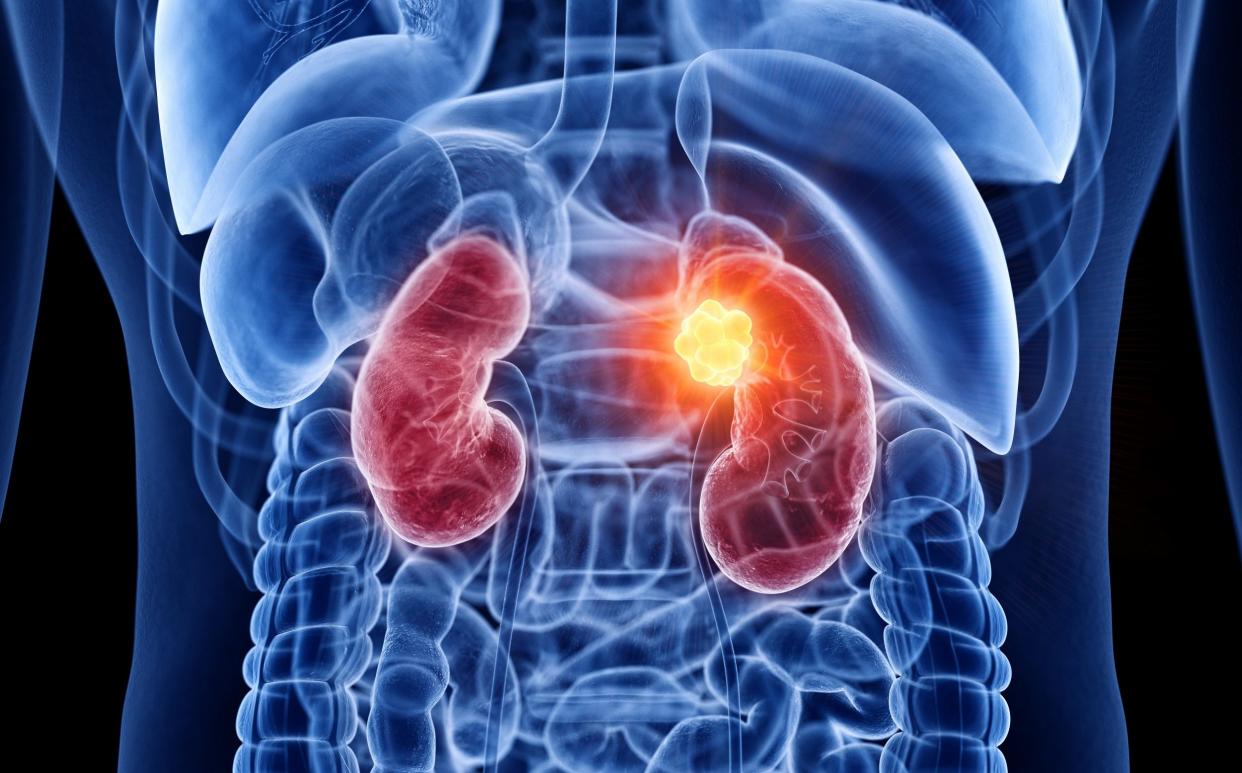One in four kidney cancer patients misdiagnosed, charity reveals

A quarter of people with kidney cancer are being misdiagnosed with urine infections, back pain and other common ailments, a damning report has found.
Kidney cancer patients are often being incorrectly told they do not have the life-threatening disease and sent home without further checks, delaying treatment and reducing the chance of survival, a report into patient care by charity Kidney Cancer UK has revealed.
Most commonly, people have been told they have a urine infection, followed by back pain and muscular issues, and kidney stones or cysts. Others were told they had a cough, asthma, or a broken bone.
And when people were diagnosed with cancer, more than a third were “unhappy” with how they had been told by doctors, with one man revealing he had been diagnosed over email.
Mark Norris, 59, from Manchester, said he found out he had cancer in January 2023 after receiving an email on the Manchester University Hospitals Foundation NHS Trust’s app.
“It came as a massive shock, and to receive the diagnosis via email was possibly one of the worst things about the whole situation,” he said. “Thankfully, the care I received by the NHS and my follow-up care has been excellent.”
Kidney Cancer UK said the “concerning gaps in communication” were due to a “shortage of time and excessive workload” for staff, which is causing “unnecessary confusion and anxiety”.
A shortage of kidney cancer specialists left one woman waiting more than five months to start treatment, by which time she had also developed a tumour in the lung.
The woman, called Hazel, said she had been fast-tracked in April 2023 after a scan found an abnormal tumour, but didn’t have a diagnosis confirmed until August, when she had to be transferred to another hospital and “start all over again” because of the shortage of staff and a growing waiting list.
“In September, I had my first appointment at the new hospital. Within a week I had further scans – because May’s scans were so out of date by this point,” she said. “This scan also picked up a 1.2cm nodule on my lung which was not present in the previous scan, as well as my 5cm kidney tumour.”
She said the “entire diagnosis journey left me feeling shattered”.
The report also revealed that almost half of patients had cancer detected while they were having a scan or test for a completely unrelated condition, and that the majority of patients did not feel supported or were not given information about support lines and counselling services.
Kidney cancer is the seventh most common form of the disease in Britain, and men and older people are at greater risk.
There are around 13,300 new cases every year, with a third occurring in people aged 75 and over. Around 13 people die from the cancer every day.
Malcolm Packer, chief executive at Kidney Cancer UK, said: “The NHS does not have the resources to provide its own patient support and information hubs, such as dedicated cancer-specific websites and social media pages.
“Consequently, many kidney cancer patients say they are left feeling confused, scared, unsupported and not in control during and following treatment.”
Prof Grant Stewart, professor of surgical oncology at the University of Cambridge said the findings were “symptomatic of the wider challenges being felt across our healthcare system”.
“Without a call for change, patients diagnosed with kidney cancer in the UK will continue to feel confused and anxious as a result of the lack of support information offered.”
An NHS spokesman said: “NHS staff are working hard to ensure that kidney cancer patients receive accurate diagnoses, are communicated with sensitively; and are provided with advice on where they can get further support for their illness.
“The NHS is seeing and treating record numbers of people for kidney and other cancers, with 30 per cent more people being treated last year than in 2015/16 and almost 3 million people receiving potentially life-saving cancer checks in the last 12 months.
“It is vital that people come forward if they are concerned about cancer symptoms – getting checked saves lives.”

